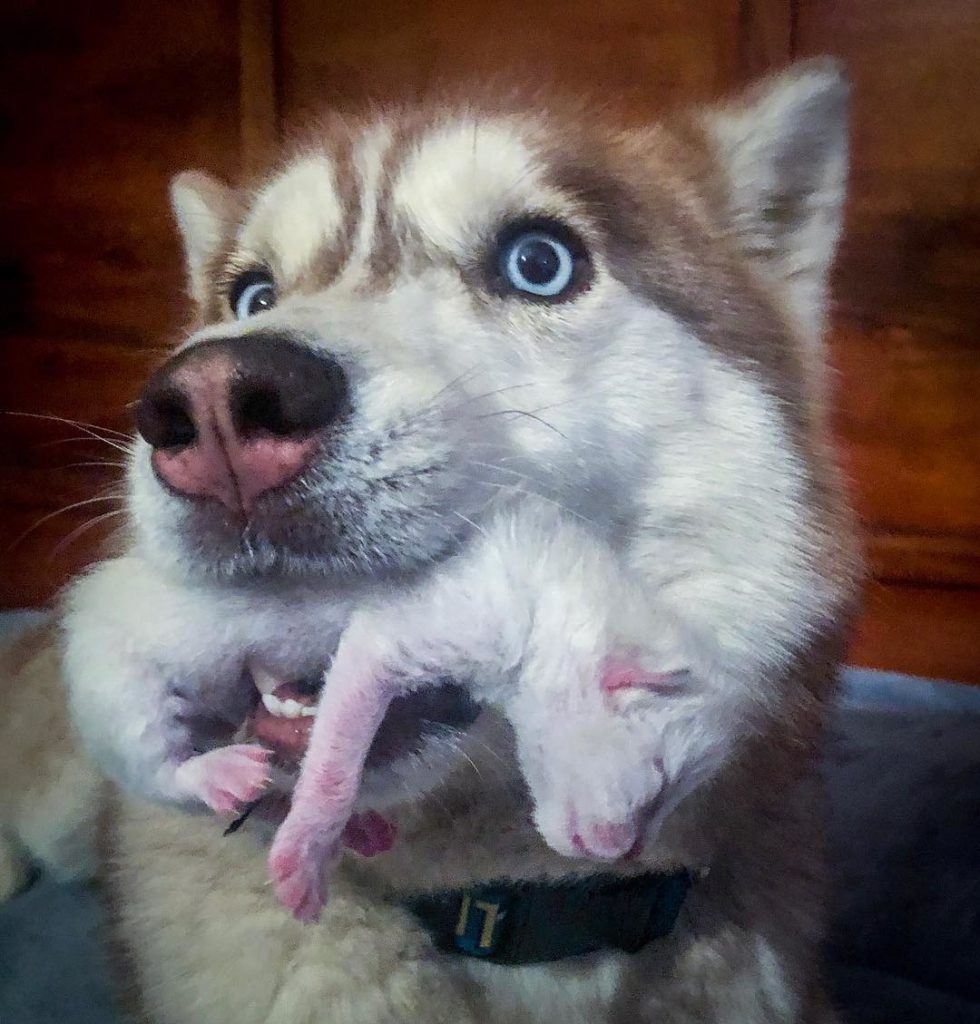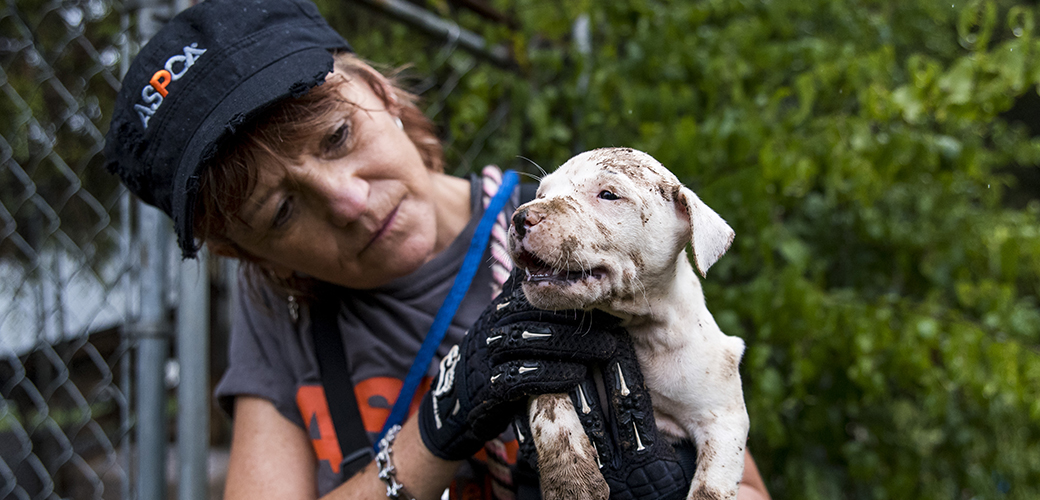
Tomorrow is National Dogfighting Awareness Day, so today we want to give you an inside look on what it’s like to be part of a dogfighting rescue. These rescues, though often heartbreaking in nature, bring new beginnings for animals who were once suffering. The ASPCA has vast investigative, forensic, legal, medical, behavioral and sheltering expertise that all play crucial roles in saving these dogs’ lives.
The Investigation
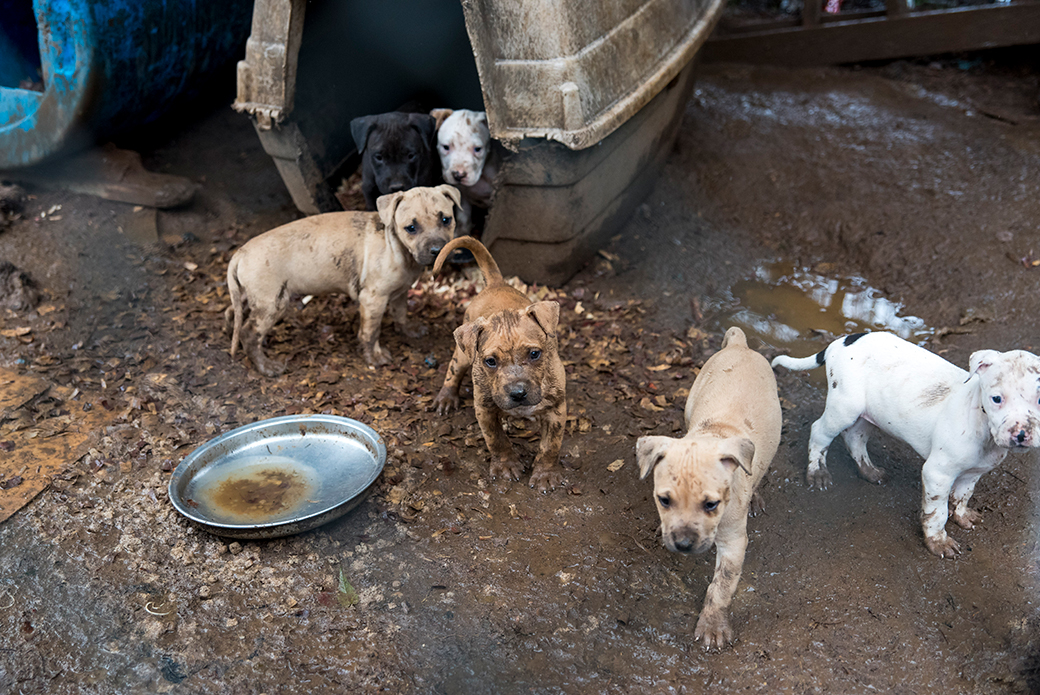
Many cases begin when law enforcement, prosecutors or other animal welfare agencies from across the country contact us for assistance on an animal cruelty case. They may reach out at the beginning, if they’re uncertain if the situation requires criminal intervention, or later on, if they need help removing and rehoming animals. Occasionally, our ASPCA investigators follow up on tips from concerned citizens and uncover situations where there may be evidence of animal cruelty. Whether we bring a case to law enforcement or they come to us, both teams work closely to quickly help animals in need while maintaining the integrity of the crime scene, documenting the conditions of the animals and providing subject-matter expertise to help authorities identify evidence and build a criminal case to support a successful prosecution.
Shelter Planning and Setup
Sheltering is a critical component of a rescue since a temporary shelter will often serve as a home for rescued animals until the court determines ownership. It can take weeks or even months for our staff to find an appropriate location for a temporary shelter.
While there are some amenities that are more obvious to have in a temporary shelter–like electricity, running water and proper ventilation–the more practical details like zoning considerations, obtaining proper permits, complying with veterinary practice laws and security must be figured out as well.
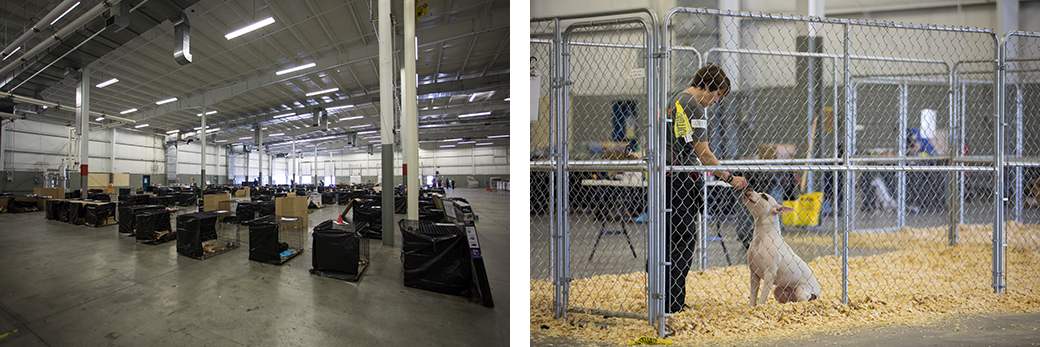
Once we have a plan in place, the team can begin staging the facility and preparing supplies for the dogs including food, transport crates, pens and cleaning, medical and behavioral supplies.
Rescue and Forensics
Following strict protocols is vital during a rescue. Once local authorities have obtained a lawful search warrant, our teams join them on the scene and assist in conducting a full inventory of the dogs on the premise. This inventory includes taking care to document any scars, injuries or signs of disease as well as environmental factors like impoverished or unsanitary living conditions.
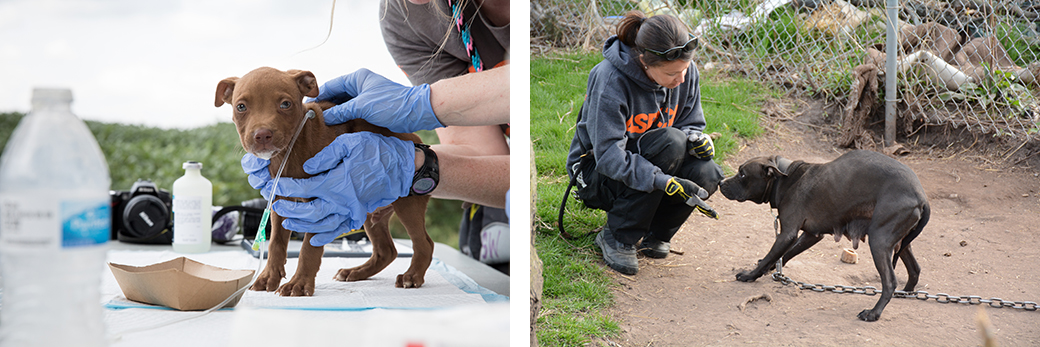
Alongside law enforcement, our Investigators, Forensic Sciences and Behavior teams will walk through the property, taking notes, photos and videos and drawing a detailed sketch of the crime scene. Our Behavior team looks for evidence of psychological harm to the dogs, such as dogs displaying compulsive or extremely fearful behavior. Our Forensics team documents animal-related evidence associated with the crime including any paraphernalia which can aid prosecutors in future criminal proceedings.
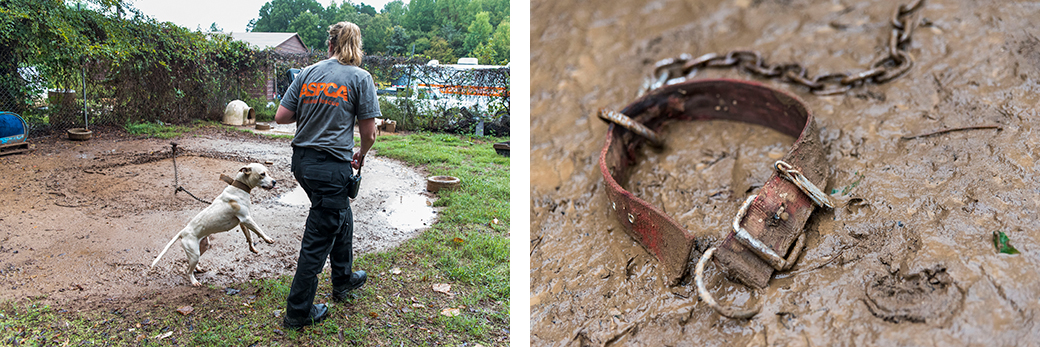
In addition to our Investigators and Forensic Sciences teams, our mobile Animal Crime Scene Investigation and Medical Animal Surgical Hospital (MASH) units are on the scene to help with evidence collection, forensic work and veterinary triage. Since the MASH unit is a custom-built mobile animal hospital, it allows our veterinarians to provide critical care to animals onsite. It has a surgical suite, exam tables and diagnostic technology that provides immediate medical results.
Intake and Treatment
As soon as it’s possible, we bring the rescued dogs to the temporary shelter using our Animal Transport Trailers.
At the temporary shelter, animals are greeted by a medical team, a behavior team, animal handlers and daily care staff. They are examined by veterinarians who administer any necessary emergency treatment, take notes on their overall condition and lay out a medical treatment plan. The behavior team conducts a forensic behavior evaluation to provide additional evidence for the criminal case and to prepare enrichment and socialization plans for each dog. The dogs are then set up safely in their enclosures to settle in and rest before any additional rehabilitation.
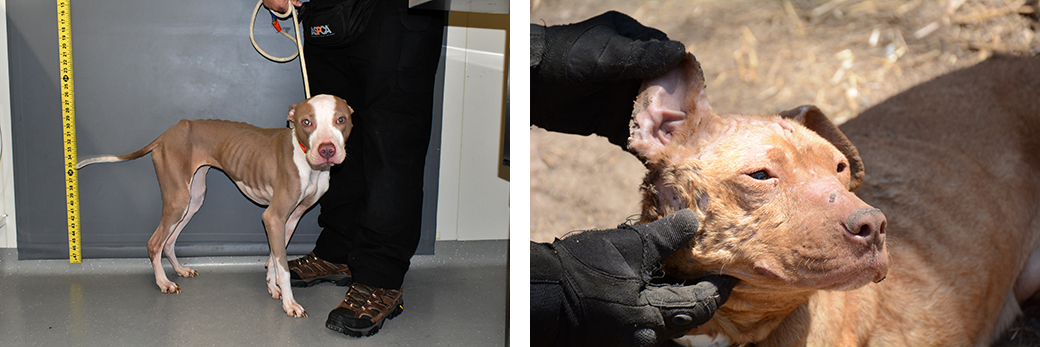
It is critical to keep diligent records of every animal in our care. During their time with us, the dogs receive first-rate medical and behavioral care. We also document the animals’ improvement in health and behavior which can be used in criminal proceedings.
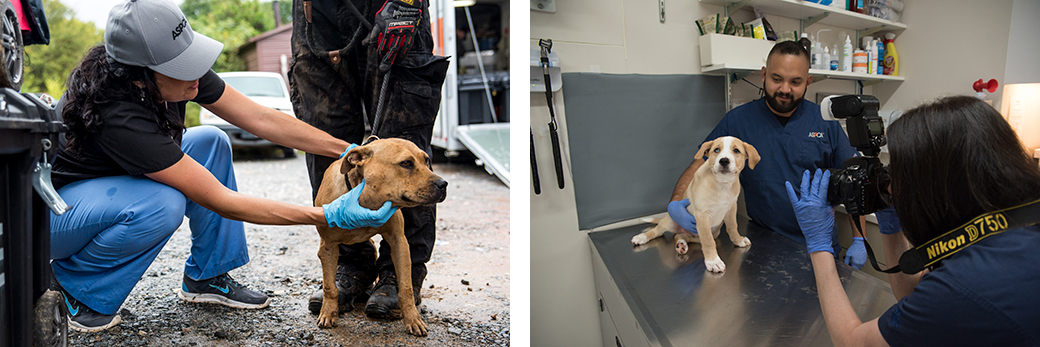
Placement and Finding Loving Homes
If the court awards ownership of the dogs to the ASPCA, we aim to place as many as we can into loving homes through our extensive network of shelter partners and rescues. For these dogs, it will be the first home they have ever been in.


